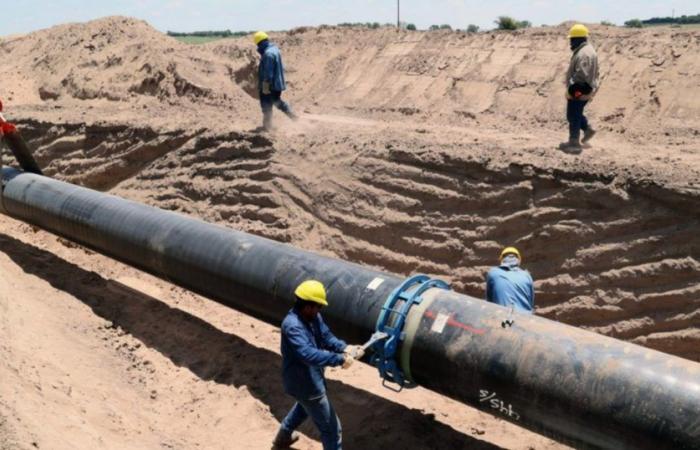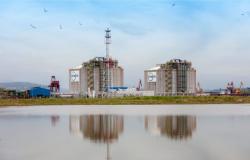In an important agreement to guarantee energy supply, Energía Argentina SA (Enarsa) and Bolivia agreed to continue the supply of gas to supply the demand of seven provinces in the center and north of the country during the winter, in order to avoid new problems of shortage and as a result of the delayed completion of the Reversal of the Northern Gasduct.
The state company announced that it signed with Yacimientos Petrolificadores Fiscales Bolivianos (YPFB) the ninth addendum to the contract that binds them to ensure the supply of natural gas for the demand in northern Argentina for the months of August and September of this year. The measure occurs in a context marked by the significant reduction of gas reserves in Bolivia, which affected the export capacity of the neighboring country.
From Enarsa they assured that “this supply will allow the central/northern area of the country to be supplied with up to 4 million cubic meters per day (MMm3/day) depending on the requirement of internal demand, while the Northern Gasduct Reversal project is completed. , currently underway”.
At the same time, they specified that “said TGN gas pipeline reversal project is estimated to be in operation on September 15 and will allow bringing to the northern provinces an additional 5 MMm3/day to the current ones and in a second stage another 4 MMm3/day. day”.
The supply contract between Argentina and Bolivia, which supplies gas to seven provinces in the center and north of the country, had an expiration date of July 31, after decades of validity. With the new renewal, it will be extended for two more months, with the objective that once the extension period has expired, the Reversion of the Northern Gasduct will be completed and the demand will begin to be covered with resources from Vaca Muerta.
After the crisis due to the lack of gas in May, the Government of Javier Milei seeks to ensure that this scenario is not repeated in the coldest months of the year, so in addition to the agreement with the Bolivian oil company, in recent weeks it has made progress in concretizing of negotiations with Brazil and Chile.
With the country chaired by Lula Da Silva, a Memorandum of Understanding was signed at the end of April between Enarsa and Petrobras for a period of three years, with different purposes, among which is “solving the NOA gas supply while the recently tendered works for the reversal of the Northern Gasduct”.
Meanwhile, Chile agreed last week with the state-owned Enap to import natural gas to supply northern Argentina from the Mejillones Liquefied Natural Gas (LNG) terminal. “Engie Energía Chile and Enap Refinerías will sign a natural gas purchase and sale contract to export the volumes arranged to Enarsa,” it was stated.
A key work would be ready in September
The reversal of the Northern Gas Pipeline, a strategic work to bring gas to the north of the country from Vaca Muerta, will be completed by next September, according to official and private sources.
The gas will make it possible to supply Bolivia’s declining gas supply, which is no longer able to cover its own demand. The only public work that the Government decided to prioritize is key to bringing gas to seven central and northern provinces.
The gas will be for domestic use but also to allow the generation of electricity by thermal power plants.
The Development Bank of Latin America lent Argentina US$540 million for the work that will distribute the growing “unconventional” gas production of Vaca Muerta, from the Neuquén Basin.
This is a key work to promote the energy transition towards less polluting fuels.
The revision will send gas to the provinces of Santiago del Estero, Tucumán, Catamarca, Salta, Jujuy, La Rioja and Córdoba. When it is completed, it will allow the shipment of about 16 million cubic meters per day.
The “reversal” already included the regular line welding of sections 2 and 3, the first 100 kilometers of the so-called “Federal Integration Gasduct” – out of a total of 122 km – that extends from Tío Pujio to La Carlota, in Córdoba. , linking the Central-West and North Gas Pipelines.
To shorten work times, an automatic welding system was used (the same one applied in the GPNK) and 4,059 welds were already carried out in 41 days.
The work is progressing with the construction of the remaining 22 km of the Gas Pipeline, 62 kilometers of loops to the Northern Gas Pipeline at the height of Ferreyra and the City of Córdoba and the change of direction of 4 compressor plants, with a completion date for the works scheduled for end of August.”
Techint and Sacde completed those welding, but they have not yet collected them from the national State, which owes them about $14,000 million in May, which was covered with credit from commercial banks.
The total budget for the work is US$720 million, of which the US$540 million loan from the Latin American Bank covers three quarters.






